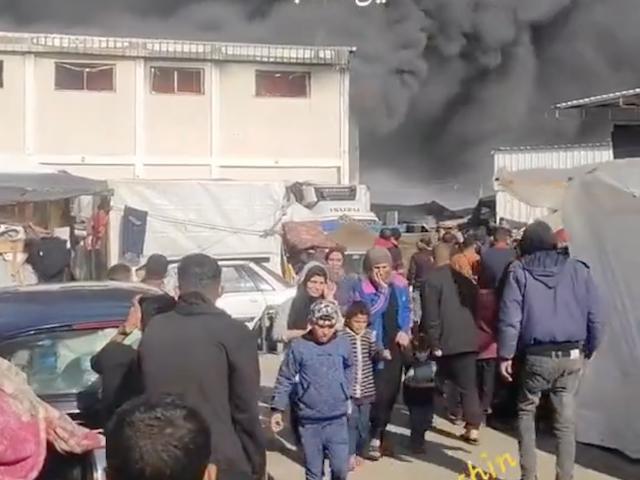The tragic consequences of the ongoing conflict in Gaza have intensified, with the death toll from tank fire at a United Nations shelter in Khan Younis, the primary city in southern Gaza, escalating to 12, as reported by a senior U.N. aid official. This incident highlights the profound impact of the conflict on civilians seeking refuge in what are perceived as safe havens.
The Health Ministry in Gaza, controlled by Hamas, has also reported a separate, grievous incident in Gaza City. According to their statements, Israeli fire targeted a large congregation of Palestinians awaiting humanitarian aid, resulting in at least 20 fatalities and numerous injuries. However, the veracity of these claims remains uncertain, as Hamas has previously been accused of manipulating events to influence public perception and international response.
“Had UNRWA agreed to the IDF plan, the lives of many civilians could have been spared,” Mr. Conricus says. “Not only did they refuse to cooperate, they actively prevented the creation of safe zones. They have blood on their hands.” @bennyavni https://t.co/78FQTM7qE3
— Jonathan Conricus (@jconricus) January 24, 2024
Reuters news agency obtained and verified footage showing the chaos and panic in Gaza City's al-Zeitoun neighborhood, with masses fleeing amidst gunfire. Notably, the footage did not capture any tanks or Israeli soldiers, raising questions about the context and origin of the attack. This ambiguity underscores the challenges faced by international news agencies in verifying information in such complex conflict zones, particularly given Hamas's history of blurring the lines between civilians and combatants.
The Israeli military has acknowledged the incidents and is conducting a thorough investigation. The focus of Israel's military operations has largely shifted from Gaza City to the southern regions, particularly around Khan Younis, following claims of Hamas militants' reduced presence in the city.
Matthias Schmale, UNRWA Gaza director, 2017-2021: “Many people told me through my four years, there's tunnels everywhere and it's a safe assumption.”https://t.co/9kbkcOJWlN
— Hillel Neuer (@HillelNeuer) January 24, 2024
UN spokesman 5 days ago: We never knew a thing about any tunnels. https://t.co/UMYaxFeY97
The attack on the UNRWA (United Nations Relief and Works Agency for Palestine Refugees in the Near East) shelter in Khan Younis, which resulted in the tragic loss of 12 lives and over 75 injuries, has drawn sharp criticism. Thomas White, UNRWA's Gaza director, emphasized the severity of the situation, noting that 15 of the injured are in critical condition. Philippe Lazzarini, the head of UNRWA, condemned the attack as a blatant violation of the rules of war, highlighting that the shelter was clearly marked and its coordinates shared with Israeli authorities.
The Israeli army, which is operating tanks in the Gaza Strip, has responded to inquiries about the tank fire, stating that they are examining all possibilities, including the involvement of Hamas fire. Mortars and RPG's which are common weapons of Hamas fighters can have similar effects as a tank. It is important to note that Israel did not deny it was their tanks, but could not comment until it investigated further and if it was, why did they fire will no doubt be part of the record as Israel has been using cameras to document their effort specifically to back up their claims.
The United States has also expressed its concern over the bombardment. State Department spokesperson Vedant Patel emphasized the need to protect civilians, respect U.N. facilities, and ensure the safety of humanitarian workers.
So now @UNRWA and the @AlJazeera terror network are partnering to spread lies. The fact is that since October 7th, over 1,000 tons of medical supplies have entered Gaza on 12,000 trucks. Israel puts NO LIMIT on the amount of aid entering Gaza, including Insulin pens. https://t.co/8atJoBFubS
— Avi Kaner ابراهيم אבי (@AviKaner) January 24, 2024
CBS News reported on the situation in Khan Younis, where even hospitals are not spared in the ongoing assault. The Palestinian Health Ministry in Gaza has reported a significant increase in civilian casualties, with the death toll in Gaza nearing 26,000 since the onset of the war, triggered by Hamas's Oct. 7 terror attack. Meanwhile, the ministry has denied that Hamas militants have used hospitals as bases to launch attacks, despite the overwhelming evidence, and confessions from hospital administrators in some of the Strip's northern hospitals. The IDF has taken media to some of these hospitals to show the weapons cache and tunnel entrances within the structures.
UNRWA's Gaza director, Thomas White, highlighted the dire situation in Khan Younis, where heavy fighting has besieged hospitals, trapping staff, patients, and displaced persons. Al Khair hospital, for instance, had to shut down and evacuate patients, including postoperative women, in the midst of the night.
White's statement called attention to the persistent disregard for the fundamental principles of international humanitarian law, including the distinction, proportionality, and precautions in attacks. He emphasized the imperative to protect civilians and uphold the sanctity of medical facilities, as mandated by international law.


